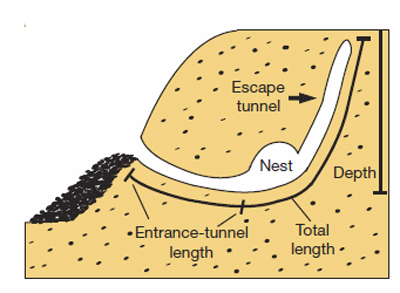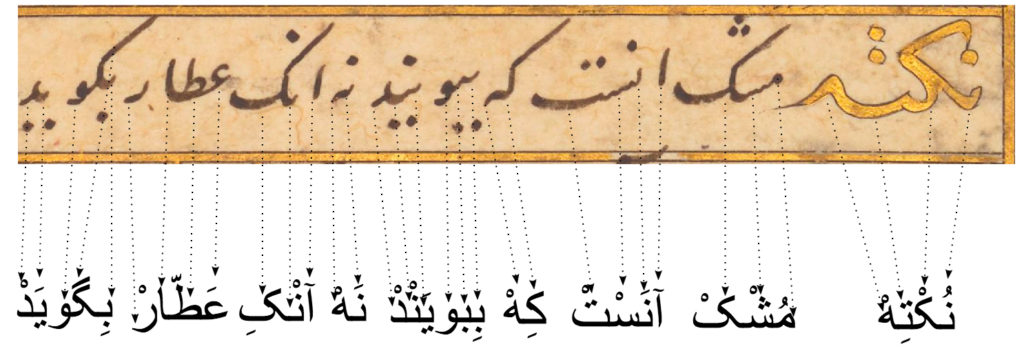إِذَا جَآءَكَ ٱلۡمُنَـٰفِقُونَ قَالُواْ نَشۡہَدُ إِنَّكَ لَرَسُولُ ٱللَّهِۗ وَٱللَّهُ يَعۡلَمُ إِنَّكَ لَرَسُولُهُ ۥ وَٱللَّهُ يَشۡہَدُ إِنَّ ٱلۡمُنَـٰفِقِينَ لَكَـٰذِبُونَ
63:1. When the hypocrites came to you (Muhammad), they said: We bear witness that you are indeed Allah‘s messenger, and Allah knows that you are indeed ITs/His messenger, and Allah bears witness that the Hypocrites indeed are liars.
Mood: Imagine your friends come visit you often, and spend time having tea or lunch and go for walks or cozy up chatting with you, keep singing your praises and brag about your virtues and yet soon you discover that they actually dislike you and talk foul behind your back and have no respect for you!
This is the mood surrounding this verse namely many would come visit and sit and softly chat face to face and spend seemingly quality times with the Prophet peace be upon him, pretending to be his follower a true Muslim and put up appearances of piety and sincerity. All the while the reality of the circumstances was the opposite, they disliked the Prophet had no belief of anything of his religion no plans to follow his instruction and if they could they would undo his instructions and block his way!
تفسير البحر المديد في تفسير القرآن المجيد/ ابن عجيبة (ت 1224 هـ)
يقول الحق جلّ جلاله: { إذا جاءك } أيها الرسول { المنافقون } أي: حضروا مجلسك،
تفسير تفسير الجيلاني/ الجيلاني (ت713هـ)
{ إِذَا جَآءَكَ } يا أكمل الرسل { ٱلْمُنَافِقُونَ } على سبيل الملاينة والخداع تغريراً لك ولمن تبعك من المؤمنين
تفسير تفسير القرآن العظيم/ ابن كثير (ت 774 هـ)
{ إِذَا جَآءَكَ ٱلْمُنَـٰفِقُونَ قَالُواْ نَشْهَدُ إِنَّكَ لَرَسُولُ ٱللَّهِ } أي إذا حضروا عندك، واجهوك بذلك، وأظهروا لك ذلك
تفسير فتح القدير/ الشوكاني (ت 1250 هـ)
قوله { إِذَا جَاءكَ ٱلْمُنَـٰفِقُونَ } أي إذا وصلوا إليك وحضروا مجلسك، وجواب الشرط { قالوا } ، وقيل محذوف، و { قالوا } حال، والتقدير
Ibn Arabi
ذبذب
Zabzab: Swinging motion e.g. pendulum from one extreme to another.
Appetition: or appetite, is a longing for or seeking after something.
These hypocrites, swing like a pendulum, between the attraction of the Primordial Isti’dad (Appetition) pulling towards the Nur (Light) of Iman (Finding sanctuary with Allah and the messengers) and the Isti’dad (Appetition) for the temporal and carnal nature of our corporeal existence pulling towards the (cloak of) darkness (Kufr).
تفسير تفسير القرآن / ابن عربي (ت 638 هـ)
{ المنافقون } هم المتذبذبون الذين يجذبهم الاستعداد الأصلي إلى نور الإيمان والاستعداد العارضي الذي حدث برسوخ الهيئات
الطبيعية والعادات الرديئة إلى الكفر
Ismail Huqqi
نَشۡہَدُ
Na-Shhad-u: We bear witness is in present tense and continuing into the future. This false witness is continual and ceaseless harassment for the Prophet peace be upon.
تفسير روح البيان في تفسير القرآن/ اسماعيل حقي (ت 1127 هـ)
{ نشهد } الآن او على الاستمرار
Ismail Huqqi
والله يشهد
And Allah bears witness: Witness of Allah is the Reality of the circumstance whether the witness of hypocrites true or not!
Allah‘s witness plainly renders the Reality, reality which supports the Prophet.
تفسير روح البيان في تفسير القرآن/ اسماعيل حقي (ت 1127 هـ)
{ والله يشهد } شهادة حقة
تفسير البحر المديد في تفسير القرآن المجيد/ ابن عجيبة
{ قالوا نشهدُ إِنك لَرسولُ الله } ، أكدوا بإنَّ واللام للإيذان بأنَّ شهادتهم هذه صادرة عن صميم قلبهم، وخلوص اعتقادهم، ووفور رغبتهم ونشاطهم، قال تعالى: { واللهُ يعلم إِنك لَرسوله } حقيقةً، كما يدل عليه ظاهر كلامهم.
والله يشهد+واللهُ يعلم
ي+ شهد
Ya+Sh-had-u: Ya as the prefix to indicate present continual tense of bearing witness .
ي+ علم
Ya-‘lam-u: Ya as the prefix to indicate present continual tense of knowing.
Tenses of Knowing
Allah is the All-Knower of all knowledge(s) about all things. There is no dependency on passage of time. Allah has the knowledge regardless of time.
Q: Why use the present continual tense, as if Allah knows or discovers in some temporal or stretch of time?
A: There is the non-temporal knowledge that Allah owns. This is a specific category or type of knowledge.
As events unfold, Allah also owns another category of knowledge in present continual temporal tense. This is a different category of knowledge!
In our understanding of English language, if something is known in the present or in the past, it is the same knowledge.
Not in the Prophetic Language. Temporal modalities of knowledge carry different categories of types. They are different forms of knowledge apropos to passage of time or lack there of.
The hypocrites of the Prophet’s time have long died, the Prophet himself is dead for long, but still at every moment of time Allah bears witness and moment by moment knows unveils the reality and the truthfulness of the Messenger Muhammad.
Al-Jilani
Allah-u: Fully aware of all secrets and concealment! (referring to Allah in state of Raf’ (Elevation))
تفسير تفسير الجيلاني/ الجيلاني (ت713هـ)
ٱللَّهُ
المطلع على السرائر والخفايا
Origin of the word Munafiq (hypocrite)
Certain species of rodents deceptively burrow two-tunnel chambers. One for the entrance which normally the predators spot thus seeing them going into. In the language of Arab this is called Qāsi’ā’ (القاصِعاء).
And the second tunnel is a concealed tunnel which its entrance is covered by a bit of dirt as to not be discernible to ousiders. In case of danger the rodent taps the said dirt and collapses the entrance and escapes without been seen! This exit is called Nāfiqā’ (النافِقاء).
Derivatives of the latter word i.e. Nifāq (hypocricy) Munāfiq (hypocrit) used by the Arab to indicate a two face person: Muslims see him enter into Islam and all the while keeps up the appearances and yet s/he already exited Islam from a concealed exit no one could see!
Lisan Al-Arab
النافِقاء

القُصَعاءُ
والقُصَعةُ والقُصَعاءُ والقاصِعاءُ : جُحْر يَحْفِره اليَرْبُوعُ ، فإِذا فرغ ودخل فيه سدّ فمه لئلا يدخل عليه حية أَو دابة ، وقيل : هي باب جُحْرِه يَنْقُبُه بعد الدامّاءِ في مواضع أُخر ، وقيل : القاصِعاء والقُصَعةُ فم جحر اليربوع أَوّل ما يبتدئ في حفره ، ومأْخذه من القَصْع وهو ضم الشيء على الشيء ، وقيل : قاصِعاؤه تراب يسدّ به باب الجحر
يقال : قد نفق به ونافَقَ ، وله جحر آخر يقال له القاصِعاء ، فإذا طلِبَ قَصَّع فخرج من القاصِعاء ، فهو يدخل في النافِقاء ويخرج من القاصِعاء ، أو يدخل في القاصِعاء ويخرج من النافِقاء ، فيقال هكذا يفعل المُنافق ، يدخل في الإسلام ثم يخرج منه من غير الوجه الذي دخل فيه .
النافِقاء
الجوهري : والنافِقاء إحدى جِحَرةَ اليَرْبوع يكتمها ويُظْهر غيرها وهو موضع يرققه ، فإذا أُتِيَ من قِبَلِ القاصِعاء ضرب النافِقاء برأْسه فانْتَفَق أَي خرج ، والجمع النَّوَافِقُ .
Translator’s Note
https://en.wikipedia.org/wiki/Patient_(grammar)
In linguistics, a grammatical patient, also called the target or undergoer, is the participant of a situation upon whom an action is carried out or the thematic relation such a participant has with an action.
We shall use Patient as the translation for Maf’oul (مفعول).
I’rab & Vocabulary
إذا
‘Izā: Conditional (Shart شرط) with the mood of IF&When … Then … .
ظَرفُ زَمان
Zarf-u Zaman: Adverbial Circumstantial of time.
مفعولٌ فيهِ
Maf’oul-un Fi-hi: Circumstantial Patient i.e. Circumstantial of time.
جَاءكَ
جَاء+كَ
جَاء
Jā’a: Came to do something, paste tense. Single third person, Hypocrites treated as a single unit or collective.
كَ
Ka: You single person pronoun (connected), in this particular case is the residual presence of Muhammad peace be upon. Though the Prophet’s person in this life is long ceased to be, there is a residual leftover presence felt by many, capable of communication and interaction.
مفعولٌ بهِ
Maf’oul-un Bi-hi: Direct Patient, patient is directly acted upon by the verb act of coming.
Ka is Mansub or in the state of Nasb since the verb reaches out to “You”.
Irfan (Noesis) 1. The verse is still happening each moment, by many of the newly born hypocrites who are infesting the religion of Muhammad peace be upon. The verse is targeted at them and admonishes no lesser than when the Prophet was alive.
ٱلْمُنَافِقُونَ
Al-Munāfiqun-a: The collective of hypocrites. The Agent-doer (Fā’il فاعلُ); it is in the state of Raf’ (Elevation).
قَالُواْ
Qāl-u: “They said”, Waw (w or oo sound) indicates the plural third persons. And Waw again serves as Agent-doer (Fā’il فاعلُ); it is in the state of Raf’ (Elevation).
This Agent-doer and its action is the Then (Answer جواب, Then) i.e. second part of the Conditional:
If&When the hypocrites came .., Then they said …
نَشۡہَدُ
Na-Shhad-u: “We bear witness” commences the verbal-sentence. Na is the concealed pronoun which was supposed to be Nahn-u (We). Verb is in present continual tense.
إِنَّكَ
إِنَّ+كَ
إِنَّ
`Inna: Both `Anna and `Inna serve as semi-verbs i.e. acting upon their noun as if it is a subject/object of a sentence.
Al-Huruf
Farabi
Chapter 1
`Inna (`Anna) means steadfast continuity perfection and solidity both for the Wujud (Being-ness) and the knowledge of some object.
الحروف الفارابي
الباب الأول
الحُروفُ وَ أسمَاء المقولات
الفصل الأوّل
حرف إنّ
(1) أمّا بعد فإنّ معنى انّ الثبات والدوام والكمال والوثاقة في الوجود وفي العلم بالشيء.
ولذلك تسمّي الفلاسفة الوجود الكامل ” إنية ” الشيء- وهو بعينه ماهيّته – ويقولون ” وما إنية الشيء ” يعنون ما وجوده الأكمل، وهو ماهيته.
كَ
Ka: “You” single person pronoun (connected), in this particular case is the residual presence of Muhammad peace be upon.
Ka serves as the noun for Inna.
لَرَسُولُ
لَ+رَسُولُ
لَ
اللام المزحلقة
La: Lam Al-Muzhalaqa namely Sliding Lam (L Sound) or Rolling Lam (downwards).
Originally the verse shoud have read
لإِنَّكَ رَسُولُ ٱللَّهِ
لَ+إِنَّكَ رَسُولُ ٱللَّهِ
Since Inna has the component of emphasis and La also does the emphasis, the Arab vehemently avoided such redundancies, therefore the Lam was rolled to the end of the phrase namely
إِنَّكَ+ لَ+رَسُولُ ٱللَّهِ
مغني اللبيب عن كتب الأعاريب
للام الابتداء الصّدرية، ولهذا علقتِ العامل في علمت لزيدٌ منطلق ومنعت من النصب على الاشتغال في نحو زيدٌ لأنا أكرمه ومن أن يتقدم عليها الخبر في نحو لزيدٌ قائمٌ والمبتدأ في نحو لقائمٌ زيدٌ فأما قوله:
أمُّ الحُليسِ لعجوزٌ شهرَبهْ
فقيل: اللام زائدة، وقيل: للابتداء والتقدير لهي عجوز، وليس لها الصّدرية في باب إن لأنها فيه مؤخرة من تقديم، ولهذا تسمى اللام المزحلقة، والمزحْلِقة أيضاً، وذلك لأن أصل إنّ زيداً لقائم: لإنَّ زيداً قائم فكرهوا افتتاح الكلام بتوكيدين فأخروا اللام دون إن لئلا يتقدّم معمولُ الحرف عليه، وإنما لم ندّع أن الأصل إنّ لزيداً قائم لئلا يحول ما له الصدر بين العامل والمعمول، ولأنهم قد نطقوا باللام مقدمة على إنّ في نحو قوله:
لَهنَّك منْ برقٍ عليّ كريمُ
رَسُولُ
Rasul-u: Messenger serves as Khabar (Information) for Inna.
ٱللَّهِ
Allah-i: Annexed Noun (مضاف إليه) to Rasul-u or annexed by Rasul-u.
وَٱللَّهُ
وَ+ٱللَّهُ
وَ
Wāw: ‘Atf connecting this phrase to previous, in orderless manner.
ٱللَّهُ
Allah-u: In state of Raf’ (Elevation) and Mubtada'(The Beginning).
يَعۡلَمُ
ي+ علم
Ya-‘lam-u: Ya as the prefix to indicate present continual tense of knowing.
Omission: Khabar (Information) about Allah-u the Mubtada'(The Beginning) omitted.
إِنَّكَ لَرَسُولُهُ
إِنَّ+كَ لَ+رَسُولُهُ
As indicated above with Lam Al-Muzhalaqa.
Wāw: ‘Atf connecting this phrase to previous, in orderless manner.
ٱللَّهُ
Allah-u: In state of Raf’ (Elevation) and Mubtada'(The Beginning).
يَشۡہَدُ
يَ+شۡہَدُ
Ya-Shhad-u: Ya as the prefix to indicate present continual tense of witnessing.
إِنَّ ٱلۡمُنَـٰفِقِينَ
Inna hypocrites: where hypocrites is the noun for Inna.
لَكَـٰذِبُونَ
لَ+كَـٰذِبُونَ
لَ
اللام المزحلقة
La: Lam Al-Muzhalaqa namely Sliding Lam (L Sound) or Rolling Lam (downwards).
Originally it was
لَإِنَّ ٱلۡمُنَـٰفِقِينَ كَـٰذِبُونَ
لَإِنَّ
Double emphasis too redundant for the Arab, therefore the Lam was rolled down to
كَـٰذِبُونَ
لَكَـٰذِبُونَ
Kazibun-a: Khabar (Information) about Inna.
© 2019-2002, Dara O. Shayda






